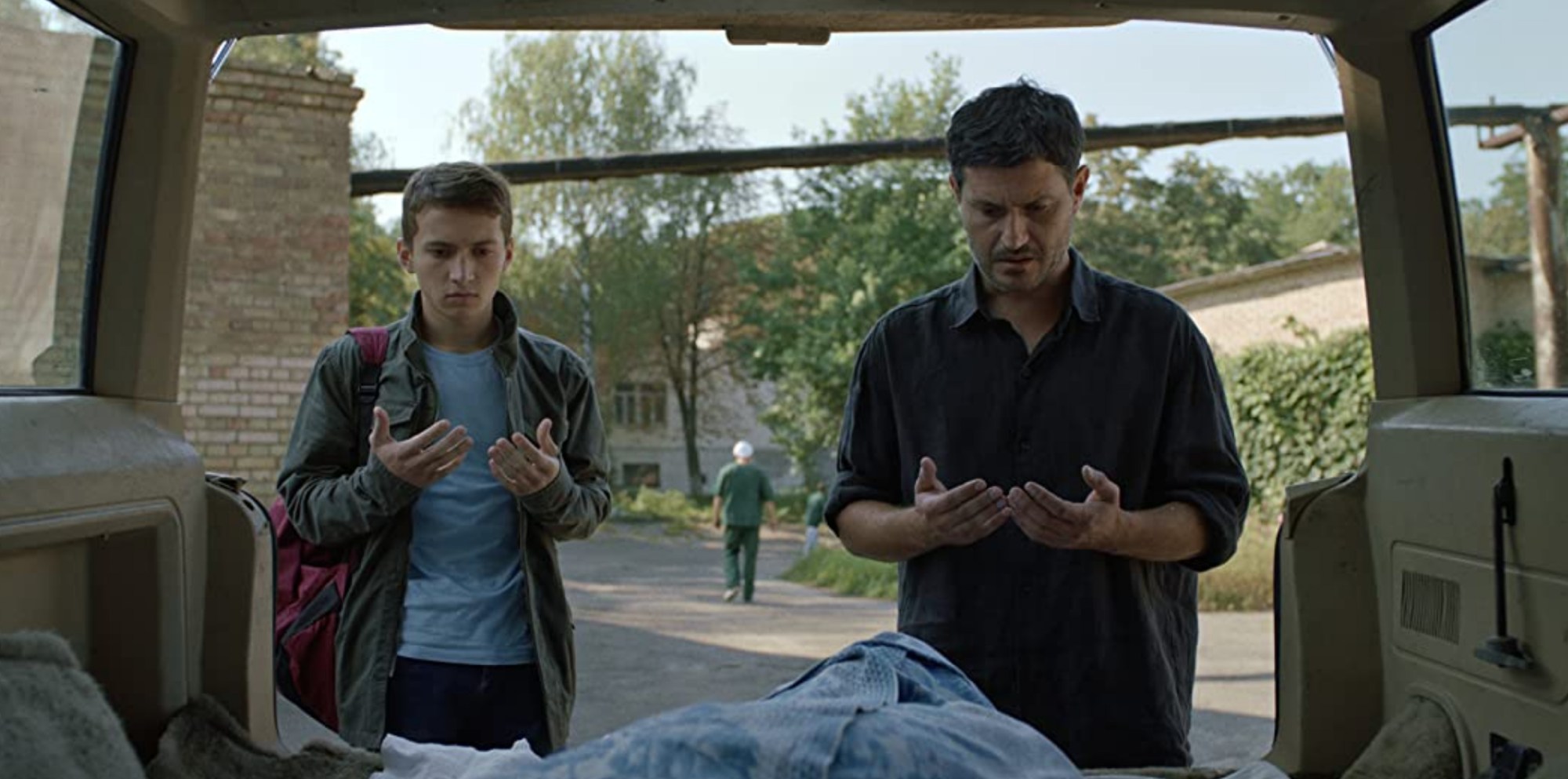
- Film
Ukraine’s Fight for Freedom: “Homeward” (2019)
Nariman Aliev’s Homeward premiered at the Cannes Film Festival in 2019 in Un the Certain Regard series. It marked the debut of a gifted first-time director, who was only 26 years old.
His film is a creeping death fugue and road movie combined into one powerful narrative, but it is also interested in father-son emotional dynamics and the political situation in the Crimea region (which changed again last month under Putin’s authoritarian dictatorship).
Homeward was selected as the Ukrainian entry for the 2019 Best International Feature Oscar, but it was not nominated.
Nariman Aliev was born on December 15, 1992, in the village of Petrivka, Krasnohvardiiske Raion, back then the autonomous Republic of Crimea.
In 2013, he received a bachelor’s degree in television and film directing from the Institute of Screen Arts (Oleg Fialko’s workshop), and a year later a diploma of a specialist in television directing from Kyiv National I. K. Karpenko-Kary Theatre, Cinema and Television University.
In 2016, he was nominated for the Crystal Bear of the Berlin Festival for his short film, Without You.
The movie begins with hard-nosed, hot-tempered father Mustafa (Akhtem Seitablaev) and his sullen son Alim (Remzi Bilyalov), an overly sensitive and initially naïve, visiting a morgue in Kyiv.
They are there to take the bullet-scarred corpse of Alim’s older brother, Nazim, who was killed in battle after volunteering to fight in the ongoing border war with Russia. Nazim’s corpse lies on a slab wrapped in muslin and rope, with evidence of blood patches soaked into the fabric.
Mustafa has family roots in Crimea’s oppressed Muslim Tatar ethnic minority and feels he must transport Nazim’s body across the country to bury him in his ancestral homeland.
The tale unfolds like a road trip across Ukraine, which becomes fractious, and action-filled. Along the way, there are roadblocks, fights with Russian border guards, casual racism from garage mechanics and the overwhelmingly oppressive sense that Mustafa and Alim are the region’s unwanted and unloved.
There is also a taking in a brush with traffic police, an enforced stop in a sleepy village, a lakeside robbery and a clash with border guards.
Ukraine’s Tatars endured unspeakable atrocities during the Soviet era and with Crimea back under Russian occupation since 2014, they face a fresh wave of persecution today; their land seized, their political organizations banned. Russian imperial power remains the lurking offstage villain in Homeward.
Crimean Tatars Mustafa and his son Alim clash after collecting the body of the elder son Nazim, a casualty of the Russo-Ukrainian War.
The family’s history with government displacement compels Mustafa on a pilgrimage to mourn and bury him in Crimean Islamic tradition.
The story starts from the morgue, before changing into a risky road trip in a Jeep Cherokee from Kyiv to the volatile Crimean Peninsula. They are sleep-deprived and the Jeep goes off the road into a ditch. Taking the vehicle to the closest auto shop, Alim meets the mechanic’s granddaughter, a young Ukrainian girl who convinces him to join her and go to the river. During this time, the traveling party loses their wallet to a group of local boys.
In the process, Alim and Mustafa become closer as they learn how to defend their passage and regain their lost possessions. Things get increasingly melodramatic, with Mustafa’s illness getting worse when the duo arrive at Uncle Vasya’s place. The home is not far from the family’s original Crimean homeland and Mustafa convinces Uncle Vasya to let him borrow a rowboat to complete the remaining segment of their passage.
In the film’s earlier sequences, as devout Crimean Tatars, the father-son duo feels a spiritual responsibility towards their fallen kin, and the reason for undertaking this journey is revealed as an extended burial rite. Yet Mustafa’s almost desperate need for closure is disclosed later on as a symptom of other issues in his life, issues that supply the film with an extremely poignant final act.
In the end, politics ends up being the least of their troubles, as the journey is beset by annoying obstacles, but also moments of supercharged bonding.
Going beyond its particular historical-military-religious contexts, Homeward shows a fascinating role reversal, how in the process of moving around, the son assumes the role of a more mature and responsible father, while his biological father is often reduced to the role of a dependable son.

